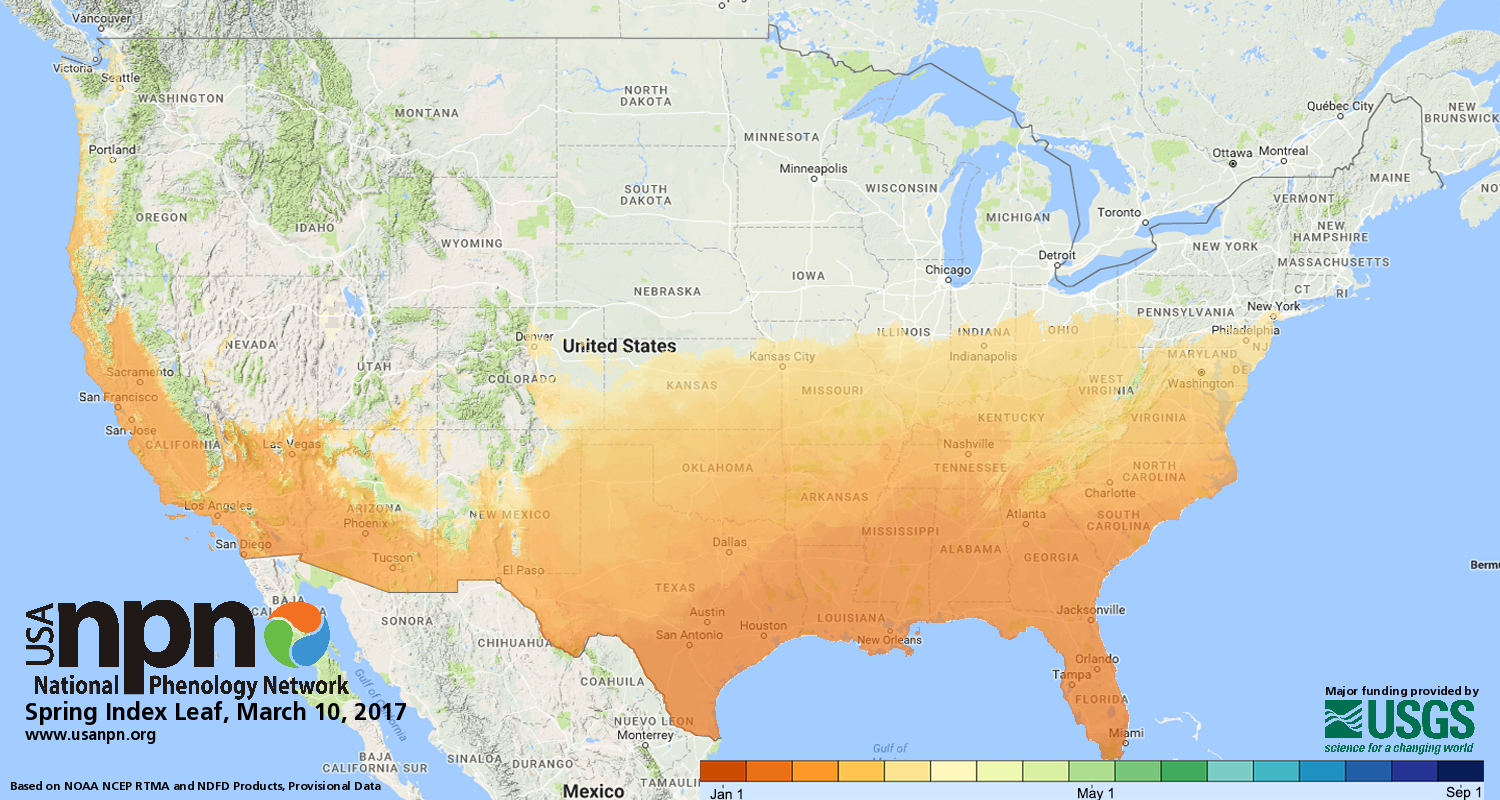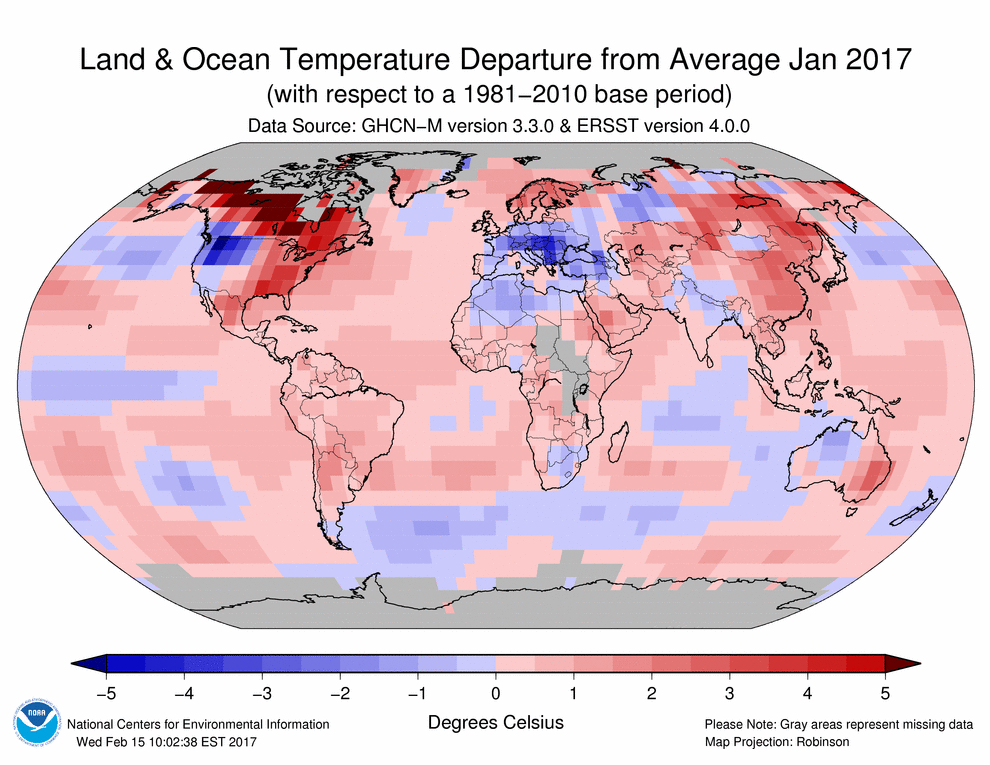|
source: USA National Phenology Network, www.usanpn.org Spring is rapidly approaching the Chicago area, and that's based on more than just the fact that it's almost March 20, the spring equinox. The Spring Leaf Index you can see above shows the arrival of spring in the southern half of Illinois already, based on temperature data. How was this index determined? Well, it all comes back to plants. Historical data on seasonal changes in plants, in particular lilacs and honeysuckles, were related to changes in temperature, which are then predictive of a broader array of spring activity in other species, such as leaf emergence and spring flowering. The National Phenology Network's data indicates that spring is arriving 2-3 weeks early in many parts of the country. Check out their animated map showing the spring index anomaly, which basically shows how much this year differs from the average. As much as I enjoy a warm sunny day, the trend of warm winter weather is troubling given all that we know about the damaging effects of climate change. Looking back over my own posts, it was just January last year that I wrote about "A Dose of Mild Winter Weather." Below is a temperature anomaly map for January of this year (February's data hasn't been released in this format yet). You can see that the Eastern US had higher than average temperatures, and NOAA reports that globally it was the third warmest January during the recorded period since 1880. In February, I started adding to my own observations to submit to the National Phenology Network, though their Nature's Notebook citizen science effort. My pussy willow tree is already beginning to flower, and the buds on my red maple tree are swelling and looking like they may be opening soon. I'll be able to see how the seasonal changes in my own yard compare between this year and previous years when I've recorded data, but my data will also be part of a much larger database that scientists can use to continue to evaluate how species and ecosystems are being and will be affected by climate change.
Climate change is a major global issue, and it's easy to feel overwhelmed. However, rather than getting stuck in the mode of feeling we can't make a difference, we can take more proactive steps. Continued data collection and scientific analysis are critical, and anyone can contribute through programs such as Nature's Notebook, Project Budburst, or some of the citizen science efforts that are a part of Zooniverse. From a standpoint of speaking towards policy, consider looking into and supporting the Paris Agreement on climate change, which is a worldwide effort to reduce greenhouse gas emissions. Read the letter to Congress put together by the Young Evangelicals for Climate Action (YECA), and see if you might add your voice with Christians calling for governmental response to the issue. Pray that we all may have wisdom as individuals, organizations, nations, and a global community as we approach the problem of climate change.
0 Comments
|
Abbie SchrotenboerI'm a biology professor at Trinity Christian College. I'll be using this page to share interesting stories related to ecology and conservation at Trinity and in the Chicago area (although I might be tempted to expand my geographic focus upon occasion). Archives
December 2020
Categories |


 RSS Feed
RSS Feed
